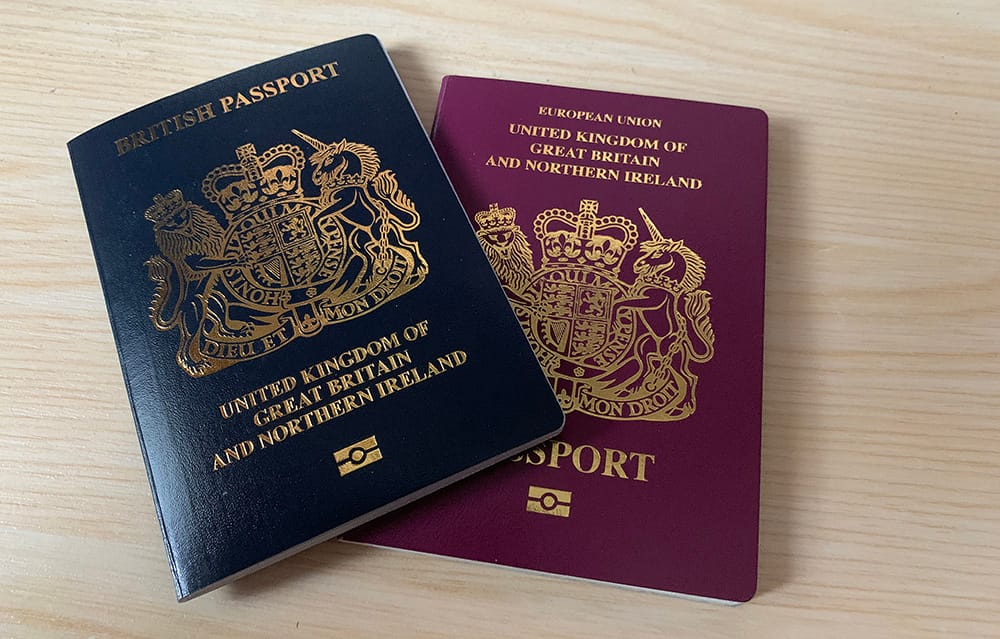Entry requirements changed

Before Brexit, the burgundy EU passports enabled us to travel freely across Europe without borders. Now, although still in possession of an EU passport new restrictions apply.
As a nation, we were more concerned with Covid-19 than passport rules and entry requirements. There was so little travel during the pandemic that many of the rules that would affect us as UK citizens went unnoticed by the general population.
Check the date, read the small print
Don’t make the same mistake we (my wife and I) did. It’s easily done. We were due to travel to Spain and had checked and double-checked the Covid requirements for Spain. The Foreign and Commonwealth website was full of… “if this then you need…” followed by a list of documents proving you had the required test or doctor’s certificate.
After scrolling down the page for what seemed like forever we finally reached the much shorter passport section and checked entry requirements. Yes, there were three months left on the passports from the date of our return. Mine had several years before it expired. Yes, the passports were valid for 10 years as most UK passports are.

As the time to fly to Malaga approached we gathered documents together and read through the entry requirements again to check if anything had changed.
It was at that point we discovered that you could not enter any Schengen country unless the passport expiry date had three months from date of departure from Europe and was no more than 10 years old. The 10 years began from the date of issue.
Those last five words “…from the date of issue” were critical. If the UK passport is renewed before the expiry date any extra validity on the old passport is added to the new passport. This effectively makes the passport valid for 10 years plus the extra time remaining on the old passport.
Your passport must be: * less than 10 years old on the day you enter (check the ‘date of issue’) * valid for at least 3 months after the day you plan to leave (check the ‘expiry date’)
FCDO Tweet
Schengen countries require passports to be no more than 10 years old from the date of issue. The 10 years on my wife’s passport expired four days before travel yet still had four months before expiry. We would be denied entry at passport control in Malaga.
Check both the issue date and the expiry date in your passport. If you renewed your passport early, extra months may have been added to its expiry date. This could affect the requirement for your passport to be less than 10 years old.
FCDO Tweet
We were not the only ones caught out by the parameters of the 10-year rule as we discovered when trying to book an express passport renewal. The average for standard passport renewal was 10 weeks at the time.
We could not get to use the express service for nearly a week and the only appointments for “in person” applications meant a trip from Southampton to either Peterborough or Belfast and a missed holiday departure.

Checking your passport and travel documents
Before departure, even before booking, check the entry requirements for Spain and the Schengen countries.
The Foreign and Commonwealth Office website page is helpful. Also, check out Travel Documents for Non-EU Nationals for the Schengen area in general.
The dark blue post-Brexit passports issued by the UK will be within the 10-year validity requirement for now.
If you don’t want to be denied entry at passport control it pays to remember that since Brexit we are no longer part of the EU and do not come under the Schengen agreement.



